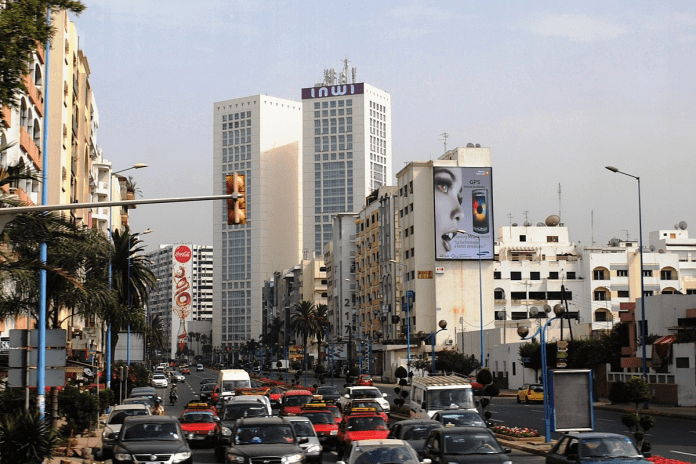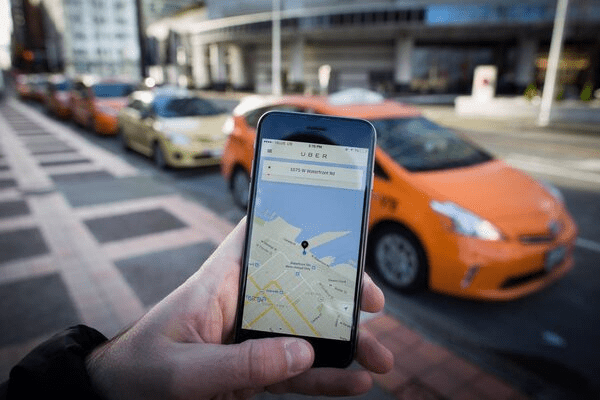Morocco has formally banned ride-hailing apps, a move that appears to be a significant win for taxi unions that have long opposed app-based transportation services in the country.
Amid rising tensions between taxi drivers and ride-hailing services, the Ministry of Transport and Logistics has banned ride-hailing apps like Bolt and Yango, citing that private drivers operating through these platforms have “no legal basis” under Moroccan transport law.
The ruling also confirms the long-held concern that ride-hailing operations existed in a legal grey area, and the government’s response makes it clear that these activities must cease immediately.
The ministry’s statement clarified that Moroccan law does not recognise app-based private vehicle transportation, rendering such operations unauthorised. Passenger transportation is strictly regulated and requires official authorisation.
It also warned that private car drivers offering paid transport are breaching the law and risk imprisonment or fines. The Ministry of the Interior, which oversees urban transport, holds the same position. Interior Minister Abdelouafi Laftit stated in parliament this year that unauthorised passenger transport violates Morocco’s transport and road safety laws.

Security agencies launched campaigns in major cities to identify and shut down unlicensed ride-hailing operations.
A widening conflict between regulators and innovation
Following weeks of tensions and clashes between traditional taxi drivers and ride-hailing services, the government has intervened. Taxi unions alleged unfair competition, arguing that app-based drivers offer variable fares while avoiding the regulatory burdens faced by traditional taxis.
App-based drivers argued they were simply meeting current demand, citing riders’ preference for the convenience of booking through an app, real-time tracking, and transparent pricing.
This dispute exposed a profound issue in Morocco’s transport system, a pre-digital mobility regime. Taxis are tightly controlled: set fares, pay with meters, and passengers see the cost and pay at the destination.
Ride-hailing apps, on the other hand, charge at will and show them beforehand, sometimes lower than regular taxis.
This price disparity, coupled with no specific legal framework, caused resentment on the part of taxi professionals who believed that their regulated business was being undercut. Thus, the government had to step in and state that public transport must operate within existing laws.

The decision, while welcomed by taxi unions, now leaves a gap in Morocco’s transport system. Commuters were already making the majority use digital platforms for convenience and efficiency.
In their absence, daily transportation in cities like Casablanca and Rabat might become more difficult, especially during rush hours.
Read also: NLC Strike: e-hailing drivers to shutdown Uber and Bolt apps from August 2
Morocco is following a wider African pattern
Morocco’s decision follows happenings across the continent as African governments respond to the wave of digital transport platforms.
In Senegal, taxi unions have sued Yango, Yassir, and Heetch for disregarding the rules. This case led the government to implement a regulation that mandates ride-hailing cars to be registered as official transport vehicles.
Togo suspended Yango during the first half of this year for lack of safety and compliance. Cameroon also suspended the same in 2023 after taxi drivers staged protests. Algeria saw Yango withdraw in 2024 over regulatory issues.
Similarly, Tunisia suspended Bolt to investigate its tax and licensing violations.

These cases illustrate a common trend: governments attempt to regulate new technologies while protecting settled ecosystems. Regulators aren’t regulating fast enough to keep up with the new trend.
For Morocco, the timing is sensitive. The country will be welcoming millions of visitors during the 35th TotalEnergies CAF Africa Cup of Nations later this year. The ban may limit transport options unless a substitute or new legal framework for digital mobility is provided in the near future.























0 Comments